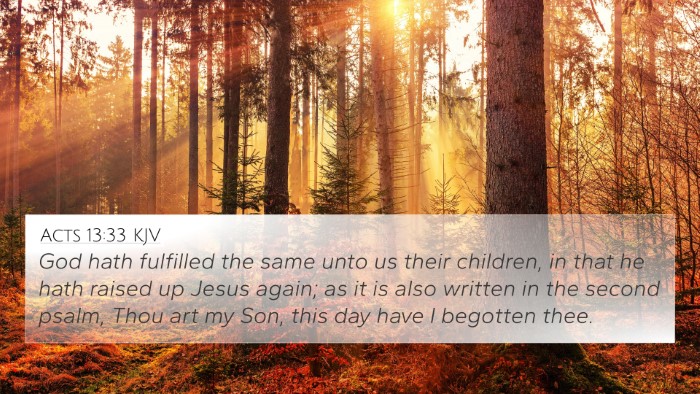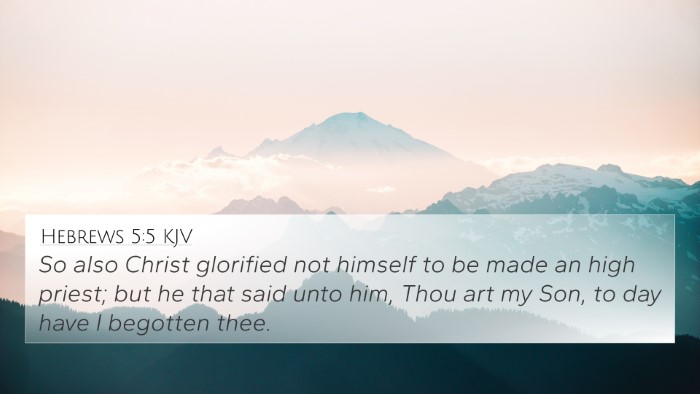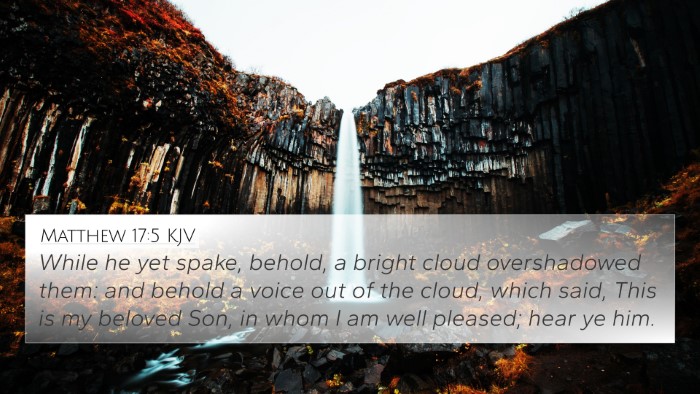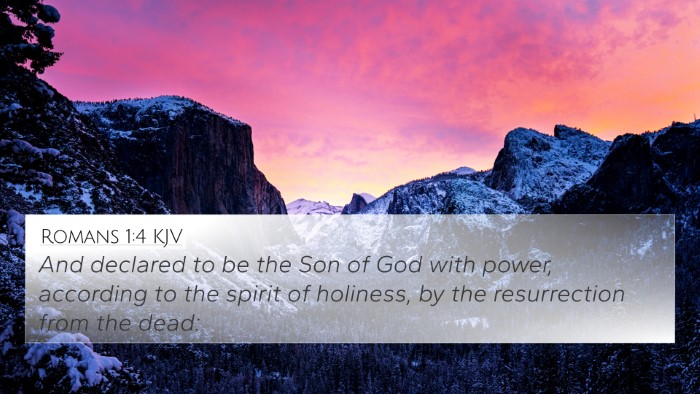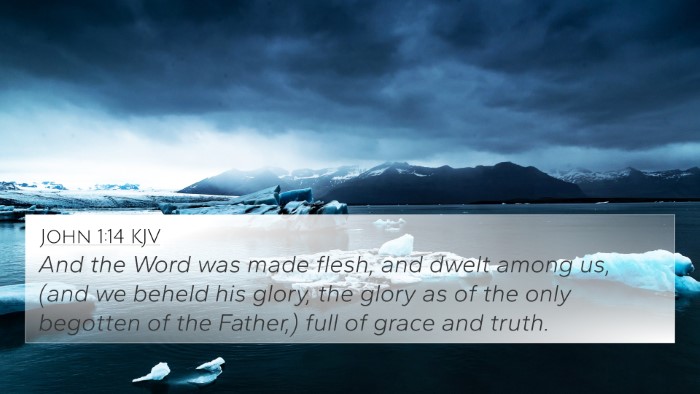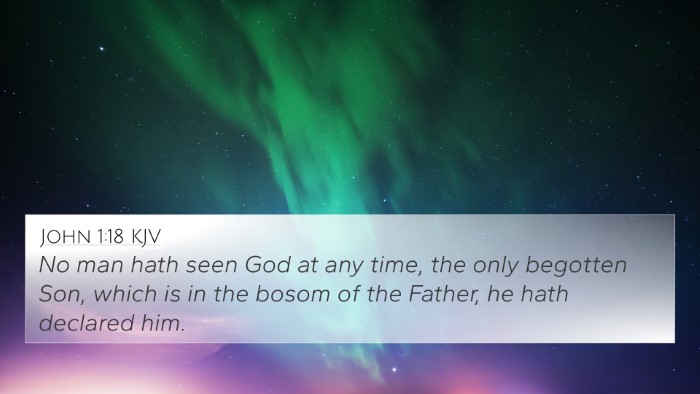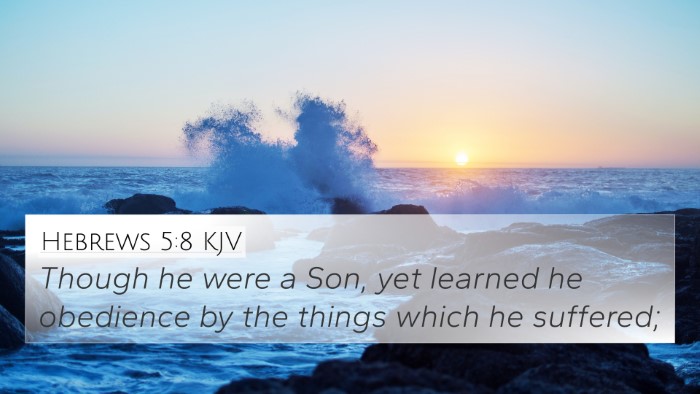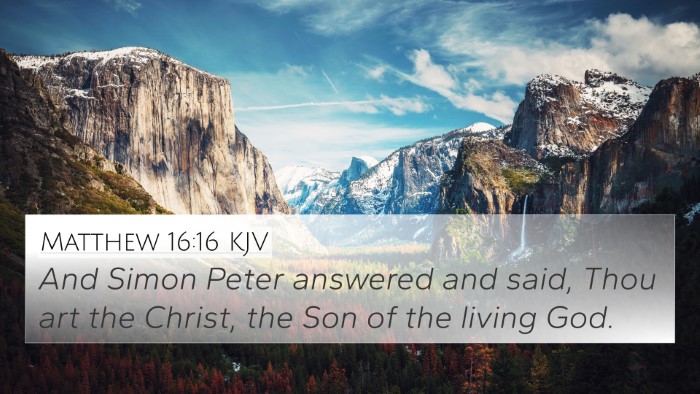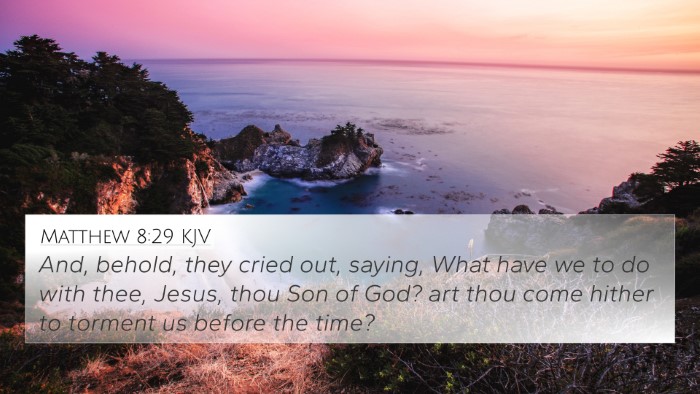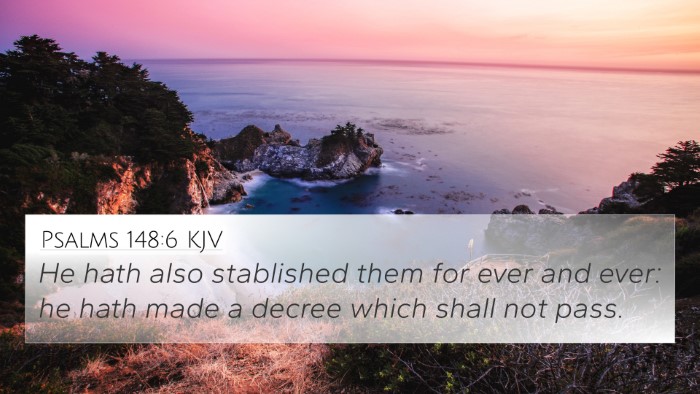Psalms 2:7 - Meaning and Interpretation
Verse: “I will declare the decree: the Lord hath said unto me, Thou art my Son; this day have I begotten thee.” - Psalms 2:7
Overview
Psalms 2:7 is a pivotal verse within the Psalms, establishing a powerful connection between God and His anointed one, often interpreted as the Messiah. The declaration of God calling the appointed one "Son" indicates a unique relationship characterized by authority, love, and divine sonship.
Public Domain Commentary Insights
Matthew Henry’s Commentary
Matthew Henry emphasizes that this verse illustrates the eternal covenant between God the Father and God the Son. It signifies the official declaration of Christ's divine sonship, highlighting His authority over all nations and His ultimate role as the Redeemer of mankind. Henry notes that this begetting represents the commencement of Christ's mediatorial kingdom, affirming that all power in heaven and earth is given unto Him.
Albert Barnes’ Notes
Barnes interprets the phrase "this day have I begotten thee" as a reference to Christ's resurrection, marking the recognition of Jesus as the Son of God. He suggests that the verse serves to clarify the exaltation of Christ and the establishment of His reign. Barnes indicates that this declaration is critical to understanding the relationship between the Father and the Son within the New Testament context.
Adam Clarke’s Commentary
Adam Clarke focuses on the royalty and sovereignty implied in this verse. He argues that it speaks to the inauguration of Christ's kingly rule, a theme resonating throughout the scriptures. Clarke links this declaration to the prophetic nature of the psalm, signifying the recognition of authority that mirrors ancient Near Eastern customs where kings were declared royalty in public ceremonies.
Importance in Biblical Theology
This verse holds immense theological significance as a prophetic declaration. It sets the stage for understanding the New Testament's articulation of Jesus’ divine origins and His mission on earth. The affirmation of sonship propels the Christian narrative regarding salvation and the establishment of God's kingdom.
Connections with Other Bible Verses
There are many Bible verse cross-references that illuminate the significance of Psalms 2:7:
- John 3:16: “For God so loved the world, that he gave his only begotten Son...” - This verse directly connects to the father-son relationship established in Psalms 2:7.
- Hebrews 1:5: “For unto which of the angels said he at any time, Thou art my Son, this day have I begotten thee?” - A direct reference to the same declaration, emphasizing Jesus' superiority.
- Acts 13:32-33: “And we declare unto you glad tidings, how that the promise which was made unto the fathers, God hath fulfilled the same unto us their children, in that he hath raised up Jesus again...” - This speaks to the fulfillment of the promises including the begetting of Christ.
- Matthew 17:5: “This is my beloved Son, in whom I am well pleased; hear ye him.” - Further affirmation of Jesus as the Son in the New Testament context.
- Romans 1:4: “And declared to be the Son of God with power, according to the spirit of holiness, by the resurrection from the dead...” - Points to the significance of Jesus' resurrection in the context of sonship.
- Revelation 2:27: “And he shall rule them with a rod of iron; as the vessels of a potter shall they be broken to shivers...” - Indicates the authority derived from the sonship proclaimed in Psalms 2:7.
- 1 John 5:20: “And we know that the Son of God is come, and hath given us an understanding, that we may know him that is true...” - Recognition of Christ's divine nature.
Thematic Connections
This verse is rich in thematic Bible verse connections, speaking to key themes such as:
- Divine Authority: Affirmation of Jesus' role in the fulfillment of God's kingdom.
- Covenantal Relationships: Exploration of the bond between humanity and God through Christ.
- Messianic Prophecy: The anticipation of God's anointed one throughout the Psalms and prophets.
- Sonship and Kingship: The dual role of Jesus as Savior and sovereign ruler.
Cross-Referencing for Deeper Understanding
Utilizing tools for Bible cross-referencing such as a bible concordance or bible cross-reference guide can enhance your study of Psalms 2:7. These resources enable readers to draw connections effortlessly, facilitating a holistic examination of themes across both the Old and New Testaments.
Conclusion
Psalms 2:7 serves as a cornerstone in understanding the relationship between God and Jesus Christ within the biblical narrative. Its significance is amplified through cross-referencing biblical texts that provide a clearer understanding of redemption, authority, and divine sonship.



